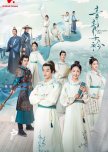
What is Equality / Inequality?
This drama has a very inspiring theme: What is equality/inequality? It is a satire criticizing the system for enabling the aristocrats for their wickedness and insatiable appetite for power and wealth in the expense of the poor and the weak by suppressing them in every possible way. The main male character of this story, together with the help of his beloved, fights to change the system to make it a more equitable one.The title of this drama, Qing Qing Zi Jin, is taken from the first line of a famous love poem, appropriately as this story is using poems as its backdrop, though poems are not the main features here.
The Story
Wenren Juan (Lu Xiaoyu aka Rain Lu) is a daughter of a prominent government official studying in the prestigious Zhuxiu Academy. One day during an outing, she and her female school mates are kidnapped by a group of bandits for ransom. Wenren Juan is selfless and she sacrifices herself to save her friends. This act of selflessness impresses the leader of the bandits, Zuo Qiuchi (Fan Shiqi aka Kris Fan) who later falls in love with her. He releases her and gets himself into the prestigious academy through a special selection by the Emperor. In the academy, he finds out why he is being rejected in a state exam many years ago, and being hunted down to be killed. Together with Wenren Juan, they uncover mysteries, corruptions, malpractices, injustices, and they vow to bring justice to the system together with their school friends.
The plot is not complex. Academic lessons are taught in poems through wisdom by ancient wise men. Although some of the logic is rather simplistic and elementary, certain scenes can be quite heart wrenching and thought provoking; their dialogues and words are inspiring. Many scenes also cover refined artistry in the fine arts, dances, chess, martial arts, poems, among others. I’m particularly impressed by the polo sports competition scene with students on horsebacks riding and fighting over the control of the ball. The cinematography is breath taking and convincing.
The Characters and The Acting
Zuo Qiuchi (Fan Shiqi) is a self-taught genius. He is the leader of the bandits hiding away in the mountains. They make their living through demanding ransom payments from the wealthy and distributing to the poor and needy. He is talented in every field – academic work, painting, chess, archery, fighting etc. He becomes a legend when he passes a special exam to enter the prestigious Zhuxiu Academy with his lowly background. Fan Shiqi’s acting is very convincing as the actor looks equally believable as a bandit or as a scholar.
Wenren Juan (Lu Xiaoyu) is from an aristocratic family with a low self-esteem because she thinks she's unwanted by her father after the death of her birth mother. She is selfless and volunteers in every given opportunity. After she realizes her father’s hidden love for her, she is determined to help clear the misunderstanding between Zuo Qiuchi with her father. Lu Xiaoyu has amazing acrobatic talents. As Wenren Juan, she showcases her trained talents in the beginning episodes. All her moves are so beautiful and elegant.
Zuo Qiuchi’s and Wenren Juan’s romance starts from the first episode of the story. Throughout the drama, they are by each other’s side constantly, solving crimes and mysteries together. Their relationship is cute and at the same time, not unlike a parent/child dynamic as Zuo Qiuchi is obviously the more mature character since he’s gone through more ups and downs in life, whereas Wenren Juan is a well-sheltered girl in a wealthy family. Zuo Qiuchi is protective of her and teaches her with great patience and helps her grow.
The acting by other cast members is equally convincing in particular the Fu Yuan Zhi (Huang Xuan Wen) character. He is tormented at the same time wicked. The actor really brings out all the traits and emotions in the character, making the viewers despise and empathize with him.
I have also enjoyed watching a baby emperor who is ultra-intelligent and is not controlled by anyone as a puppet. This is very refreshing and I love the moments whenever the Emperor comes on screen. This drama also brings us a very loved and inspiring second couple, Hang Ru Xue (Xie Bin Bin) and Qing He (Yan Yi Yi). Together with our OTP, they form the most solid friendship that can be trusted with their own lives.
My Verdict
The dialogues are simplistic and idealistic. The plot is not complex. There are a few tropes and a evil sister. Despite some insignificant flaws, this is an enjoyable light series. The sword fighting choreography is amazing and usually found only in great wuxia dramas. The cinematography exceeds many of similar genre, with quite a few intelligent and inspiring scenes. It also brings out the typical parenting in Asian families – pressures the youngsters get and not being rewarded with comforting words from their parents. Most of all, it focuses on the inequality and morality of the society we still live in.
Don’t let this drama go unnoticed. This is a great watch!
Was this review helpful to you?
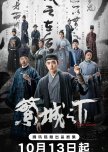
The Shades of Justice
In this gripping thriller, we delve into a world where the boundaries of justice are not clearly defined. The story revolves around a young servant who masterminds a heinous crime, leading to the murder of his master's entire family, heirs, and servants. With their wealth in his hands, he vanishes for years, only to be confronted by justice two decades later. This short drama, spanning just 12 episodes, is a rollercoaster of enigmas, mysteries, ironies, suspense, and dark humor.Constable Qu Sangeng, portrayed by Bai Yu Fan, embarks on a harrowing journey to uncover the gruesome murder of his beloved superior, whom he regarded as a father figure. Soon, a string of similar murders emerges, all pointing to a common culprit. Qu Sangeng must untangle the web of connections between the victims and decipher the motive. The trail leads back to an incident that occurred two decades ago at the Lu mansion, which was razed to the ground, claiming the lives of most of its occupants. Only Lu Zhi, played by Yu Yao, and a handful of others managed to escape.
As the narrative unfolds, viewers will empathize with Lu Zhi, understanding the circumstances that drove him to commit these atrocities. As a clever adolescent, Lu Zhi believed he had executed the perfect crime, unaware that someone held knowledge of his dark secret. This mysterious individual resurfaces two decades later to exact vengeance on those responsible.
While Lu Zhi's story is the genesis of these events and the serial killer's vendetta sets Constable Qu Sangeng on his quest for justice, they are not the central characters. The focus of the story shifts to Qu Sangeng and his decision to prioritize justice over personal vengeance, as well as Song Chen's struggles, portrayed by Ning Li. Both the adult Lu Zhi and the serial killer make only hidden or fleeting appearances as the story progresses.
Every character seems to harbor a motive and arouse suspicion. As the present-day plot unfolds and investigators attempt to piece together a complex puzzle, flashbacks shed light on the events from two decades ago. While the drama hints at hidden and illicit affairs, there is no central romantic subplot, reflecting the societal norms of the era.
Without good translations, some viewers may find this drama hard to understand as it is laden with riddles from verses and poems by the ancient sages. Even those well-versed in Mandarin and written Chinese may find themselves struggling with certain scenes and story elements, as the narrative moves swiftly and some details remain unexplained, catering to a more discerning audience. Rewatching becomes essential not for cherishing particular moments or characters but to gain a deeper comprehension and capture the subtleties that might have been missed.
My Verdict
This thriller is an adrenaline-pumping ride, offering a captivating storytelling format, top-notch direction, and commendable performances, with Yu Yao's portrayal of the juvenile Lu Zhi and Ning Li's portrayal of Song Chen standing out the most.
What makes this drama truly striking is its realism, even in today's world, in depicting the complex backdrop of wealth and power. Characters like Lu Yuan Bao, portrayed by Zhang Xi Lin, who transformed from a bandit to a wealthy and influential figure, highlight the murky waters of power dynamics. The story also portrays corrupt government officials who can be easily swayed, and the wealthy who, despite their outward respectability, remain to be despicable and thuggish. The concept of justice is portrayed in shades of gray, demonstrating that what one person sees as justice may be viewed as injustice from another's perspective. This theme resonates with the contemporary geopolitical landscape. For Qu Sangeng, choosing justice over personal vengeance is a wise choice given his superior's role in his father's death which he remains unaware of.
Great watch!
Was this review helpful to you?
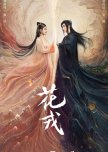
It's Hard to be a Phoenix
"Beauty of Resilience" is an enchanting tale of love between a phoenix and a son of God, intertwined with themes of duty, sacrifice, and the pursuit of immortality. In a world where chaos looms over the three realms, the forbidden romance between a beautiful phoenix, disguised as a human girl, and a handsome young man, burdened with the task of ending her existence, takes center stage. As their love transcends time and challenges, they must navigate a treacherous path of love, loss, and the relentless pursuit of power. Unbeknownst to everyone, the fateful mission to kill the phoenix is driven by a personal obsession for immortality, setting the stage for a series of life-altering choices.As the story unfolds, the true motivations behind the decree to kill the phoenix are revealed. It is discovered that the insatiable desire for immortality drives the selfish personal obsession of the one in power. The phoenix possesses a mysterious spirit flower called "hua rong", capable of enhancing its power and granting immortality. This misguided and deadly fixation wreaks havoc on the lives of the main characters, causing them to experience a rollercoaster of emotions, including love, hate, happiness, pain, gains, loss, togetherness, and separation, across multiple lifetimes.
Ju Jingyi delivers a convincing performance, taking on multiple roles throughout the series. As Wei Zhi, a humble and low self-esteemed maid servant with a mysterious power, she embarks on a journey that leads her to the cultivator academy. Her portrayal captures the essence of Wei Zhi's transformation into a phoenix, showcasing a delicate balance between strength and vulnerability. However, in her role as Sima Wangyue, a male military general, Ju Jingyi's feminine appearance becomes a noticeable aspect, though her ability to deceive the entire army is reminiscent of the conventions in Chinese cross-dressing dramas. Nevertheless, her overall performance remains commendable and believable, despite her lack of character change as she assumes the roles of the sacred lady of the demonic sect and the demon queen.
Guo Junchen's portrayal of Yan Yue is commendable, showcasing his versatility as an actor through multiple character interpretations. However, there are instances where the writing of his characters seems inconsistent and confusing. In his role as the conflicted lover tasked with killing the phoenix, his lack of emotional display during crucial moments leaves the audience longing for a deeper connection with his internal struggles.
The drama introduces several memorable supporting characters, adding depth to the storyline. Yi Er, portrayed by Lu Tingyu, captures hearts with her bubbly personality as an explorative cook betrothed to Yan Yue. Liu Dongqin's Mu Nan, the secret admirer turned demon chief who is unable to laugh, and Lin Fengsong's reluctant sit-in heavenly king, Yan Luo, also bring unique elements to the narrative. Additionally, Zhang Zhihao as Ou Ya, the wolf, and Song Xinran as Lan Su, the fox, add intrigue and depth to the story. On the other hand, the antagonists, portrayed as atrocious and hateful, provide a sense of relief when their fate is sealed. However, their actions also result in the loss of beloved side characters, which feels like a missed opportunity for more nuanced storytelling.
The drama excels in its authentic and visually stunning portrayal of the settings, costumes, and overall production design. While the headgears worn by Ju Jingyi may appear distracting in some scenes, the attention to detail and commitment to authenticity are praiseworthy.
My Verdict
One recurring flaw in the story lies in the characters' repetitive experiences and their failure to learn from past mistakes, resulting in a somewhat predictable narrative. Additionally, the presence of loose ends, plot holes, and weak logical explanations can detract from the overall viewing experience. The ending leaves certain aspects of the main characters' fate ambiguous, leaving the audience wondering if Wei Zhi and Yan Yue have returned to a time where their lives can begin anew without the burden of the phoenix. Furthermore, the conclusion for Yi Er feels far-fetched and some of the side characters' untimely deaths seem unnecessary, suggesting a lack of creativity in the writing process.
Despite these shortcomings, " Beauty of Resilience" remains an engaging drama, albeit with less humor and a heavier emphasis on evoking emotional responses from viewers. Although it may not have garnered favorable ratings on MDL, it still deserves recognition as a decent production with compelling performances and an intriguing storyline.
In conclusion, " Beauty of Resilience" is a captivating love story that explores themes of sacrifice and redemption within a fantastical realm. Its visually appealing aesthetics and committed performances make it a worthy addition to the genre. Don't miss the opportunity to experience this enchanting tale of love and fate.
Was this review helpful to you?
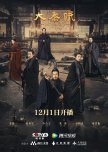
Epic Production. Absolutely Intriguing & Captivating!
The Qin Dynasty Epic depicts the odyssey of Qin Shi Huang aka Ying Zheng (259 BC – 210 BC) from childhood to the time when he became the First Emperor of China (221 BC). The drama is enthralling and fascinating. Over the years, there have been many other movies and dramas made about Qin Shi Huang. Whether this account comes any closer to the actual truth is anybody’s guess. For me, this story is captivating and has successfully put all the events and historical figures into the perspective that can be easily understood by the viewers.Being a novice, I’m in no place to judge the accuracy of the story with the actual historical account. Traditional Chinese historians have always depicted Ying Zheng as a brutal tyrant who burned books, buried scholars alive, feared death and was obsessed in seeking elixir for immortality. Many of the writings are fragmented, inconsistent, and unable to reconcile with logic and actions. In recent years, historians are beginning to acknowledge the inconsistencies and misleading accounts, and reevaluate how we view Qin Shi Huang.
In Sima Qian’s Shi Ji (Records of the Grand Historian) of which many historical writers based their writings on, the inconsistencies were glaring. In it, two accounts were provided for Ying Zheng’s birth father, one was Ying Yiren and the other Lǚ Buwei. Other controversies include the burning of books and killing of scholars. It is not hard to see the motive behind the controversies. Different ideologies or justification of own existence, among others, may have led to biased accounts of events and truth. Later historians found that Sima Qian may not have been objective as he was a Confucianist who opposed to Ying Zeng’s Legalism ideology, therefore his account made against the first Emperor cannot be given much historical weight. They (the historians) feel the text was likely written to smear the emperor, justifying their own existence.
This drama tries to look at Qin Shi Huang from a different angle, emphasizing on his achievements, piecing together all the events and historical figures that have been officially documented. What I see is a benevolent genius of compassion and wisdom with unlimited patience and vision. He’s a man with love and blood, not as depicted for 2,000 years as a coldblooded monster. This new account is enlightening because it explains a lot of the missing pieces and joins the dots of logic and actions.
Qin Shi Huang shows wisdom of a modern-day politician. He recruits talents from all over the land including non-Qins. He favors meritocracy over nepotism and entitlements. He doesn’t emphasize on rituals and traditions, instead he values law codes which don’t change according to family or parochialism. The goal unification is constantly on his mind and brought up in almost every conversation with his generals and ministers. The drama shows how he maneuvers and outwits his opponents. He uses embargoes, espionage, sabotages and any conniving and deceptive strategies to undermine and weaken other states. Together with his strategists who made up of his most trusted generals and ministers, they read their enemies like a book and strike them at their weakest points. Having the best minds working for him, Qin State always comes up winning against the other states even with them forming alliances against Qin. Many of such historical figures and actions in the drama were well documented, and the timeline matches the sequence of events in the drama perfectly.
Watching Ying Zheng reminds me of watching Mei Changsu in “Nirvana in Fire” who always works with seamless plans and capable people. To conquer other states is like playing a game of chess, his generals and ministers brainstorm with him. They understand his mind and work with him in unison – they all have one goal – unification. It is really very interesting to see how crafty, deceptive and conniving each is and together they play their adversaries into their traps. The desperation of each state to remain alive catches the viewers’ sympathy, and yet we all know that they’re doomed.
The Characters and The Acting
This drama boasts an enormous cast with, among others, soldiers, generals, ministers, palace attendants, and most of all, prominent characters from various states. Despite having such a huge budget, I was disappointed with the selection of actors playing the juvenile Ying Zheng. It was confusing to watch a 3 year-old future emperor in a 9 year-old body, and then a 9 year-old in a 15 year-old body, worst, a 13 years old king in a 40 year-old body and voice. However, when Ying Zheng becomes a grown adult, Zhang Luyi becomes a perfect Qin Shi Huang. According to some account describing Ying Zheng’s look, he was said to have a tall bridge with pointed nose, and sharp eyes. Zhang Luyi fits that description perfectly. With his regal charisma, he and Qin Shi Huang become one. Seeing the earnest in his eyes, feeling his turmoil, torments and predicament, the viewers feel his loneliness and empathize with him. Zhang Luyi has rewritten history by giving the viewers a brilliant and benevolent ruler.
There are so many lovable and respectable characters here. Duan Yihong’s Lǚ Buwei is simply brilliant and convincing. What an incredible performance here by the actor. Li Si is another important character and Li Naiwen’s performance renders me speechless; he is believable and immaculate. My other favorite characters include Yao Gu, Dun Ruo, even the despicable characters such as Lao Ai (we had had a field day with him) and Guo Kai because both the acting and the characters themselves are incredible to watch and fascinating. All the characters have their flaws and strengths and the whole cast has successfully captured every single detail and performed to their best. A big kudo to the whole cast.
The OSTs (Official Sound Tracks)
We hear drum beats for the opening music. It’s solemn and heart pounding, grandiose and mysterious. The closing music is agonizing, resigned with dream and vision. I love the verses the Qin soldiers sing in unison. The male chorus is somber and touching, bringing viewers back to the ancient times of more than 2,000 years ago.
My Verdict
This is a serious and heavy drama that can be dry for some viewers who are not into Chinese history. For me, this is one of the best dramas I’ve ever watched with no noticeable plot holes nor flaws. The Qin Dynasty Epic is definitely a very difficult drama to make. The number of actors, horses, costumes and logistics used here is mind boggling. The war scenes are epic and breath-taking with war machines, spears and arrows, soldiers and horses, and everything is believable and impressive. This drama is really an eye opening experience into ancient China more than 2,000 years ago.
It is amazing to see how much legacy Qin has left in modern China and the nations around it including Korea and Japan; the name China has come from the character Qin. How the story is being written, putting all the fragmented accounts into proper place and being linked together, is simply a work of art. The writing is tight and immaculate. Superb cinematography with beautiful and awe-inspiring scenes makes this drama second to none.
I watched all 78 episodes without skipping a beat because every moment is pivotal and absorbing. How Ying Zheng has led his strategists and generals in trapping and playing out their adversaries is really an intriguing and convincing watch. Upon completion of this drama, my afterthought is, how a great man as such succumbed to his eventual untimely ending. Like most of us, his fear of death and quest for eternity become one of the keys to the downfall of his short-lived dynasty.
If you are a history buff and can stomach atrocities, cruelty and bloodshed, you would definitely enjoy this drama. This is a must-watch for all who love history, in particular Chinese history.
TWO THUMBS UP!
Was this review helpful to you?
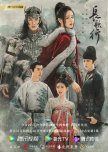
大道无为 (Dàdào wúwéi) For The Noble Deeds
Since “Nirvana In Fire”, I have dreaded watching a grown-up Wu Lei (he was only 15/16 in Nirvana In Fire) because I fear his grown up image may ruin my fond memory of the juvenile Wu Lei as the Fei Liu (Nirvana In Fire) character. To my pleasant surprise, Wu Lei has grown up into a fine young man with a chiseled good look. Together with Dilraba who doesn’t seem like an ideal partner in the beginning, this drama has taken me by surprise and totally out of my expectation.Adapted from a manhua (comic), the story begins at the Xuanwu Gate incident in 626 during the Tang Dynasty when Li Shimin assassinated his brother the Crown Prince, Li Jiancheng, and his younger brother, Prince Li Yuanji, and later became the emperor (Emperor Taizong) himself. This story is based on real historical events and people, interjected with fictional characters and incidents. The story is captivating, nail-biting and well told. The fictional parts fit in perfectly with the actual historical events.
Li Changge is a fictional character whose father was the Crown Prince assassinated by Li Shimin. She vows revenge. Her quest takes her through the plains to the steppes. She meets friends and foes. She loses ones she loves and meets new ones. Ultimately, she finds the love of her life whom she would sacrifice everything to be with.
Both Dilraba and Wu Lei were not on my favorite actor list. I also didn’t think very highly of the matching of the couple. I was so wrong. Here in this drama, both are amazing, in their acting and their styling. As Li Changge, Dilraba is strong, tough, decisive and strategic without the cringe-worthiness which I have always associated her with. The two strands of her hair become her trademark and is very pleasant to watch but criticized by some viewers. Whether dressed as a man or as a girl, Dilraba is beautiful and her acting is convincing. Wu Lei has an aura of a man with few words but a lot goes through his mind at every instant. As Ashile Sun, he’s extremely charismatic and authentic, looking stunning in tribal costumes with braids on horseback, fearsome and stunning in war helmet. With Li Changge, their chemistry is wonderful and reassuring.
My Verdict
I love all the characters, friends or foes. Each has a story and the cast is well selected. The acting is convincing and authentic. Some scenes can be heart wrenching and tear jerking. The pace is just right with actions and connivance packed for every episode, making the whole drama irresistible to watch. And the OSTs are some of the best.
Everything looks good until the fighting comes. The substitution of expensive scenes (such as wars) with cheap manhua blemishes this wonderful drama. For me, it hasn’t diminished my pleasure and would have given this a 10/10 had it not been the little blemish.
An absolutely wonderful drama. Highly recommended!
Was this review helpful to you?
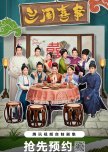
An Irresistible Blend of Laughter and Love
"Hilarious Family" is a slapstick drama characterized by its exaggerated expressions and actions. Despite this, the comedy remains relatable, with natural and genuinely hilarious jokes. Each character is distinctly unique, realistically portrayed, endearing, and undergoes well-developed growth. The deliberately exaggerated acting, though, is both convincing and playful. At its core, the story follows a widow who raises her four daughters by selling tofu. Now that the daughters are grown, the widow is focused on finding suitable husbands for them, providing a satirical commentary on societal norms that still resonate in today's world.The story introduces multiple romantic couples, each with their own amusing yet heartwarming stories. The music dances with a whimsical charm, amplifying the actions and emotions of both the events and the characters.
Du Ruyu (Liu Lin) adores all of her daughters equally, though there are moments when it may seem like she favors the eldest and overlooks the second. This, as it turns out, is a misunderstanding. Her strong sense of pride and concern for social image often lead to comedic mishaps. Her own romantic subplot adds a sweet and amusing touch to the story.
The eldest daughter, Chun Jinrong (Han Yunyun), at 29 years and 18 months, is fervently in pursuit of a husband. Her mother pulls out all the stops to assist her in this quest. Jinrong is the most refined among the daughters and invests the family's limited resources in clothing and accessories, all in the hopes of attracting a wealthy suitor. Initially appearing as a potential gold digger, as the story unfolds, we come to understand her motives and see her love for her family. Her escapades and encounters are hilarious.
Chun Peilan (Jackie Li), the second daughter, is a gentle and domestic individual. Her aspirations are centered around cooking, managing household chores, and caring for the family. While no one anticipates her finding love, she captures the heart of a very handsome man with dreams of becoming a valiant hero and a dashing sword fighter, but he couldn't use a sword.
The third daughter, Chun Banxia (Wu Jiayi), is a principled individual intolerant of any hint of wrongdoing. She is well-versed in the law and medicine, and assists her uncle in running a small clinic from home. The humorous exchanges she has with her mother underscore her sharp wit and determination.
Finally, the youngest daughter, Chun Keling (Li Jiaqi), is a spirited tomboy known for her youthful courage and impulsiveness. She enjoys venturing outside, often accompanied by a pair of friends, to confront bullies and teach them a lesson. Unbeknownst to her, a remarkably handsome young man falls in love with her for her distinctive qualities. However, not every girl dreams of marrying a prince, and Keling is no exception.
The final episode strikes a poignant and insightful note, yet the comedy continues, offering a delightful contrast. Lu Buping's hilarious kitchen scene and his comical daikon cutting leave deep impression. Chun Peilan originally requests the daikon to be diced into small cubes (丁), which is the true essence of cutting into "ding". Lu Buping, however, took a more literal approach, sculpting it into the shape of the character 丁("ding"). Despite its slapstick nature, I'm consistently impressed by the exceptional writing and acting on display.
My Verdict
Rowdy and constantly chaotic, this heartwarming story does away with traditional antagonists. Challenges faced by the characters often find resolution through serendipity. Every chaotic mishap can be traced back to a series of comically absurd misunderstandings. The romance is tender, endearing, and injected with humor. The dialogue is natural and witty, and the performances are praiseworthy. It's an easy-to-follow, enjoyable relaxation suitable for the entire family.
Recommended!
Was this review helpful to you?
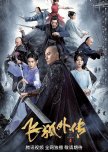
Old Style Wuxia, Best Martial Arts Fighting Scenes
I have always thought Jin Yong’s novels are better read than watched. That's because many of the elements, such as nei gong (內功), qi gong (气功) and qing gong (轻功), are better described in the written form than acted in the visual form, as these could not be shown on screen convincingly without good special effects. Though I love Jin Yong novels, so far, I have not fully enjoyed any of the drama adaptations. The Side Story of Fox Volant (The Young Flying Fox) is totally out of my expectation as the wuxia elements are excellently captured with no CGIs nor apparent camera tricks.Over the years, this novel has been made into various movies and dramas. As with all Jin Yong stories, there is a lot of Jianghu martial arts fighting of various styles. In most today’s wuxia dramas, fighting is normally not the main focus, hence not given much screen time. But here in The Story of Fox Volant, martial arts are the essence. Most of the fighting styles are captured in details with great martial artists executing outstanding fighting choreography. These are some very impressive real fighting skills without too many camera effects as in other dramas. The fight choreography is authentic and stunning.
The story is set in China during the reign of the Qianlong Emperor (r. 1735–1796) of the Qing dynasty. I normally don't like pigtail stories but this drama is exceptional. The actor who portrays Hu Fei the hero, is not your usual young idol with beautiful ethereal looking face. Qin Junjie looks rugged and common, and fits in realistically as the Hu Fei character who is upstanding and carries the noble “xiayi” (chivalry) motto of "路见不平拔刀相助" - drawing the sword to helping those unjustly treated. Unlike Donnie Yen Chi-tan or Bruce Lee, Qin Junjie is not known as a martial artist, but here, his body double (if any) seamlessly weaves into his fighting posture, making the overall fighting scenes very believable. Indeed, all fighting scenes, including the fighting scenes executed by the female characters, are so good and believable.
Apart from Hu Fei, Miao Renfeng (Lin Yusheng) is perhaps the most loved character. Holding his beloved daughter in a bundle in one arm, and wielding a sword in the other hand fending off assassins while the baby is sound asleep, this is perhaps the most iconic image of old time wuxia. His ending may tear many fans, but I say, "Fear not!", for a hero doesn't go down in silence.
Yuan Ziyi is Hu Fei's love interest and a very good martial art fighter with a whip. Together with Hu Fei, they set out to punish the bad and help the mistreated. I love the Yuan Ziyi (Liang Jie) character, but not so much Liang Jie's portrayal because the actor is rather stiff and lack the charisma for the role though she is very beautiful. The way she speaks is also quite unnatural.
Cheng Lingsu is a poison genius master who uses poison to heal and for defense. She is in love with Hu Fei but her love is not being reciprocated and she magnanimously accepts the outcome of their relationship. I find Xing Fei’s portrayal of Cheng Lingsu very good and convincing.
My Verdict
This drama takes a very different style and vibe. It may not appeal so much to the young viewers who may prefer watching their idols, nor appeal to romance buffs who prefer more romance as romance here is very subtle. However, if you are a martial arts buff, you’ll love this drama. As with all wuxia stories, this has a great wuxia philosophy of sacrificing self in upholding justice and righteousness, and that has also become the ending of some of the main beloved characters, to the dismay of many viewers. Most, if not all, of Jin Yong’s stories are very political, this one is no exception. Some of his novels were banned at one time or another (not banned anymore) in China and in Taiwan for political reasons. This story shows the hypocrisy of the government, its tyranny and its atrocities. Many of the depictions still ring true in today’s world. As the three brothers in the Qing guards dodging their duties say, “We don’t try to win, but we also don’t want to mess up”. In other words, "Let's just be mediocre and keep our heads", a satire of the current bureaucratic system.
Great watch! Recommended for martial arts buffs!
TWO THUMBS UP! BRAVO!
Was this review helpful to you?
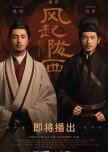
Perfect!
I started watching this series after a long day of work. My cloggy mind didn't allow me to digest the story properly. Heck! I couldn't even distinguish the bearded characters one from another; they all looked alike to me. This was such a heavy drama for me wanting something light and funny to end my day, so I put it aside. Then I read my good friend's, PeachBlossomGoddess's, amazing review. Her articulation and insightful analysis piqued my curiosity and encouraged me to pick this drama up again. I'm glad I did. Since then, there's no one moment that was not filled with heart pounding excitement, suspense and intrigues.The Wind Blows From Longxi is not your normal Chinese historical drama with beautiful faces and costumes, light hearted dialogues or "wirefu" fighting scenes. There are no wuxia elements nor romance here. This drama is heavy, authentic, and fast moving, with vicious killings and amazingly believable combat scenes. The acting is immaculate. The plot is tight with plots within plots, and twists and turns. Every episode is nail-bitingly tensed and enjoyable.
Set in the Three Kingdoms period (220 to 280), some very famous historical figures such as Zhuge Liang, are featured (not main role), with the capital city of Chengdu, and the chants of restoration of the Han Dynasty are repeatedly echoed. The settings, costumes, decorum and some events follow closely the historical records though the main characters are fictional.
I have thoroughly enjoyed this drama. This is a must-watch for history buffs and anyone who loves spy stories and espionage, and values authentic acting and believable settings with great plot.
TWO THUMBS UP!
Was this review helpful to you?
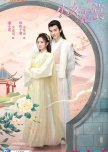
Grace and Kindness Beat All Evil
“Ni Chang” is my 4th drama in a row with a weaving and/or embroidery theme. For the main leads, I only know Bi Wen Jun from “In A Class of Her Own”, and I have never watched any of Li Jia Qi (aka Nicky Li)’s work. The first episode with an amnesiac Luo Wang (Prince of Luo), a cute energetic little girl with an amazing business acumen, and a big sister disguises as a big brother shouldering the burden of a family business and household, have pulled me into the story and I have come to enjoy it very much.What seemingly a light fluffy romance drama turns into a dark, murderous watch with multiple villains that are corrupt and continue to break the law with impunity. The plot propels the story, giving viewers a fast growing up Ni Chang (performed by Li Jia Qi) after she loses everything and becomes a fugitive, and a free-spirited leisurely prince (king), Quyang Ziyu (performed by Bi Wen Jun) who develops into an important official that brings fairness into the palace supply system.
I love the determined, indefatigable and quick-witted Ni Chang. Despite her devastating loss, she remains kind and unselfish that wins her many friends. Many kind hearted female characters portrayed in dramas tend to be gullible, but not Ni Chang. She is smart and not easily cheated. Li Jia Qi may not have the face of a beauty pageant queen, but she grows on viewers. Her character becomes stronger and stronger throughout the story - she is cute and playful as the juvenile Xie Xiao Ni, and later develops into a stoic Ni Chang who is not afraid to face her greatest challenges. Her acting is convincing and she has great chemistry with Bi Wen Jun.
As Ouyang Ziyu, Bi Wen Jun brings his free spirit charisma from “In A Class of Her Own” to this drama. Tall and good looking, Ouyang Ziyu’s love for Ni Chang is unselfish and inclusive, contrasting to Su Wen Yu (acted by Will Song)’s imposable and selfish love which Ni Chang detests. A good businessman himself, Ouyang Ziyu is prepared to give up everything, including his princely title, to be with Ni Chang. He helps her grow, placing her needs in front of everything else. Bi Wen Jun gives viewers a very relaxed feeling, unrestrictive and yet confident in everything he does; he is very believable.
Come the villains. Yan Wen Xiu (acted by Sun Jia Lu), Yuan Dao Cheng (acted by Li Yu Xuan) and that official Gao guy with a giant mole, are vile, blatant, hideous and despicable. The actors’ performances are so good that these characters really turn the viewers’ stomachs and we all wish them dead with no regrets. Every step Ni Chang takes, Yan Wen Xiu is there to harm her, but each time Ni Chang comes up winning, though not without the sacrifice of others who have come to her protection.
My Verdict
This is an easy to watch and to follow drama with clear logic and flow, and yet packed with heinous antagonists with hideous motives in the open. Everything is pretty straight forward in black and white. The ending concludes very well with all ends tied – the good is rewarded and the bad punished. In fact, the climax ends in episode 39, and episode 40 devotes to new life for all our protagonist characters, with a hiatus of two years for our main leads in order to completing their personal missions – Ni Chang to rebuild her family business and Ouyang Ziyu to revamp the government system making it transparent and fair.
This is a drama transient with grace and kindness, and that enables our characters to find their common grounds. A sweet drama for all in the family. Don’t miss it!
Was this review helpful to you?
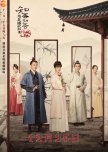
Two thumbs up. Strongly recommended!
Finally, I completed watching this drama, almost 6 months after its airing. My delay in completing this drama was not only because it’s a long drama of over 70 episodes, but also for other reasons. This is a drama that is totally different from most other historical dramas – in visuals, sound effects, costumes, etiquettes, how people speak, how real families lived more than 1,000 years ago, to name a few. Unlike most historical Chinese dramas which emphasize on its beautiful eye-catching costumes, unreal politics and dramatic effects, “The Story of Ming Lan” tries to depict how the Chinese society was like more than 1,000 years ago. The producers even used the sepia tone effect to capture the mood, making it even more so authentic. How accurate such depiction is to actual life in that era perhaps only historians can tell.The real reason for my delay was how much I relished this drama that I didn’t want to simply skimp through the episodes without truly understanding and appreciating every nuance of the story. I researched into Chinese history of the Song Dynasty, in particular during that era, and tried to understand its social ethics and geo-politics.
The period depicted in this drama is a very interesting one, with political turmoil and constant worries of foreign invasion from the north. All these political upheaval and socio-cultural scenes were captured realistically in the drama.
I love the OST of this drama, sung at the end of the episodes. The lyrics (also the Chinese title of this drama) was from a poem by a very famous female poet, Li Qingzhao, during that era. She was a rare breed, not only living in a suppressive environment in the Chinese society, also in the world. Her poems were mostly very free-spirited or of care-free style, something unthinkable from a woman of that era in that society.
It is painful to see how women were oppressed and suppressed in the orthodox conservative Chinese society, and such treatment of women is still prevalent in many modern societies. The glaring injustice in gender inequality is so entrenched in most cultures that it is literally an uphill battle if one wants to change it. Sadly, a lot of the enhancers for the inequality are also women themselves. On the brighter side, the current trend in women liberty is very encouraging especially in the western world. I hope, we will one day, truly achieve equality for all.
This drama is truly a gem, and one deserved to be watched and relished by all.
Two thumbs up. Strongly recommended!
Was this review helpful to you?
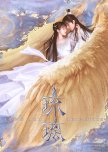
Complex, Intriguing and Heart-Wrenching
This story is complex and twisted, but at the same time intriguing and heart-wrenching. The plot is initially very hard to understand, as I have felt I needed 10 brains to dissect and digest the story. The journey to discovering and finally understanding the plot is littered with blood and romance, love and hate, trust and betrayal, friendship and animosity. The story telling and the acting are amongst the best in recent dramas.Yu Sifeng (Cheng Yi) is a son of a human mother and Golden Bird race which disguises as a cultivator sect wearing masks. He's the top disciple of the sect and his biological father is the sect leader. Their masks are never to be removed but somehow Yu Sifeng's mask is removed by Chu Xuanji (Yuan Bing Yan aka Crystal Yuan). This is their 10th lifetime meeting each other. For his past 9 lives, Yu Sifeng has loved and been devoted to Chu Xuanji but dies in her hands or under her who doesn't even know of his love and devotion. In this tenth lifetime, she finally falls in love with him but he's now a Golden Bird that is considered demonic and persecuted by the cultivation sects. The couple goes through a lot of trials and heartaches, especially for Yu Sifeng. In every episode from beginning of the drama till the end, he suffers enormous pains, both physically and emotionally, and each time, his love and devotion for Chu Xuanji never wane. Their love story and romance are beautiful and heart-wrenching. All the viewers' hearts go out to Yu Sifeng because of his sufferings and committed devotion to Chu Xuanji. As the story develops, we begin to see this is only part and puzzle of the overall plot. Who is Chu Xuanji? Who is Yu Sifeng?
Cheng Yi’s acting is fabulous. As Yu Sifeng, he’s quiet, patient and reserved but compassionate and passionate. He’s the kindest being ever, protecting others and sacrificing himself. He’s always the last to speak and endures all the mistreatment others throw at him. His face is always emotionless and leaves everyone guessing what he is thinking. And yet, Cheng Yi speaks with his emotions. The viewers can feel his agony, torments, despairs, pains, resignation and anger. With Chu Xuanji, he is always patient and forgiving. He loves her so much that viewers can feel his affection by how he looks at her, so tenderly and lovingly. Cheng Yi delivers 100 percent of Yu Sifeng to the viewers.
Yuan Bingyan’s portrayal of Chu Xuanji is close to perfection. She is beautiful and young with a naïve and innocent look. Time and time again as Chu Xuanji, she hurts and torments Yu Sifeng, either unintentionally or intentionally, physically or emotionally, and then she would return to him to help him heal, only to throw him back into his misery again. However, when the lives of those she loves are threatened, she changes into a fearsome warrior that is completely different from that silly young girl. Yuan Bingyan is very believable as Chu Xuanji and has had a great performance.
Other cast members are equally impressive in their acting. I’m particularly impressed by Bai Shu’s acting as Teng She; the way he talks and slithers, exactly like a snake which he has transformed from.
The CGIs in this drama are not too bad. The backgrounds are pretty well done. I love the golden wings that come out from Yu Sifeng. They’re so beautiful and look so authentic, and Cheng Yi’s acting blends right in with the wings naturally as if those are part of him. I absolutely love those ethereal visuals of him.
Of all the three realms – heaven, underworld, and mortal world, both Yu Sifeng and Chu Xuanji want to live in their current lifetime in the mortal world – as they put it, it’s great to be humans. The endings are satisfactory to most viewers with all characters having proper closures, the deserving awarded and the villains redeemed.
Despite its length of 59 episodes as I was hesitant initially, this drama is a great watch that tugs at our hearts. I have truly enjoyed the journey. Strongly recommended. Two thumbs up!
Was this review helpful to you?

What Really Matters
This is a real-life story with characters who may realistically reflect ourselves and people around us. It has intense office politics with people trying to backstab each other and unreasonable demands from their superiors. It explores the relationships between couples who are trying to achieve their ultimate goals, and in the process, losing everything. It tries to answer the question: What really matters?Story Overview
This is a story about three best friends, their relationships with their respective partners and their struggles living in Shanghai. One is a workaholic - ambitious, independent and magnanimous. In the process to achieve her dreams, she sacrifices her health and the thing that means the most to her: the man who loves her and she loves. The second one is a mother who wants the best future for her daughter hence immerses herself into everything she can possibly do for her 4-year old. In the process, she is blinded by everything and destroys her own happy family. The third girl is an ultra-materialistic girl who works as a waitress and spends all her money on handbags and fashions. She constantly seeks out the best suitor - wealthy and handsome. In her quest for the fattest goldfish, she doesn’t see the little angel fish waiting silently right beside her.
The second part of the story details how the three friends pick up their shattered pieces and rebuild their life. Li Siyu (Liu Shi Shi) realizes failure is the mother of success, and it is not success that she should seek relentlessly, but it's the process of achieving it that she should relish in. Zhang Zhi Zhi (Kan Qing Zi) realizes that she needs to build her confidence by enriching herself so that she doesn't need to depend on anyone. Gu Xiao Ling (Chen Ya Ting) realizes that life should not be dictated by wealth and let herself becoming a slave to it. The ending is very appropriate for all the main characters meeting their own fates: the ones who persevere get rewarded and the ones who go under the law get punished.
There are many conflicts we may encounter in our own life and in our relationships: career or family; should a woman marry for financial security or for love; should a man marry a woman who is only interested in his wealth; should a woman give an adulterous husband a second chance for the children’s sake; should a person remarry even if he/she still loves the other partner deeply (who may have died or being divorced); must a person get married; should a woman be dependent or independent; what criteria should be used to find one's life partner; should a woman consider giving everything for the family a sacrifice and if so, should she sacrifice for her family?
This drama brings out all the flaws in us as humans. There are moments one can be easily tempted and go off rail, as in Liu Yang (Peng Guan Ying) but fundamentally, he's a good father and a good person. Lei Hao Wen (Li Ze Feng) is also a good person who is kind and magnanimous, and a good friend who can be counted on. He just makes a wrong move out of desperation. Li Siyu has a lot of flaws too despite of all her qualities; she is too ambitious and high risk taking which may not fare well with many men including Chen Yiming (Zhu Yilong). And for Chen Yiming, like others, he has his flaws - he is over confident at first and loses all his confidence later and become insecure. I can identify myself with many of the characters here.
Like the characters in the story, many of us do lose ourselves from time to time. We make bad choices and set wrong priorities. We let materialism blind us. In answering the question what really matters, perhaps couples can work out their issues and avoid the pains like our characters are suffering in this drama.
Acting
Liu Shi Shi is a veteran actor, therefore, I judge her more stringently than how I judge younger actors. She gives a very good and convincing performance here as Li Siyu but occasionally I find her facial expressions confusing. Others may argue that this is good acting because in real life, one may need to subdue one’s expressions but still conveys the emotional messages. For me, Liu Shi Shi still hasn’t done this very well. In contrast with Zhu Yilong, as Chen Yiming, he manages to convey to the viewers all his emotions, without really that many facial expressions. A lock of his brows, a tilt at the corner of his lips, the sad look in his eyes, the flashings of his lashes – all these convey his emotional states and Zhu Yilong has given a 100% performance here.
The Message
Often in pursuit of our dreams, we get lost in the forest. We equate success with prestige, wealth and power. We replace our common sense with materialism, and in the process, sacrificing things that are most precious to us.
Ultimately, this story sends us a message: life can be complicated or simple depending on how we want to make it. It can and will be complicated if we have too many demands (eg. prestige, wealth and power); it can and will be simple if we look at what really matters in life, away from all the materialism.
My Verdict
This is a drama about life. No light-headed cute romance. No comedies. Everything is as how we live life ourselves - struggles, tears, broken hearts, failures, divorces, the craving for success, unemployment, capitalist greed, shady business dealings, office politics, work pressure, extra-marital affairs etc. It's a very down to earth and realistic drama for a very mature audience. It helps viewers look at themselves and ask questions about life. It is a thought-provoking story which should be enjoyed by all.
Was this review helpful to you?
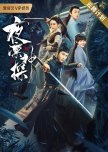
Another Historical CSI
Just as I was lamenting what a summer slump this month is with no good dramas to watch, kaboom! this unexpected drama landed on my lap, with all 24 episodes released in one go. For some reasons, it’s being split into 2 seasons, with 12 episodes each. The very first episode is intriguing enough to draw any discerning viewers to continue with the journey of a brilliant investigator, a super good-looking police chief, a skilled martial arts female constable, and a spoilt little brat.As a genius investigator, Jun Wujiu (Li Xizi) has a very sensitive nose like a canine, and his observation to details is unmatched by anyone. He’s able to place himself in a crime scene and reconstruct the crime with his imagination. Though knows no martial arts, he uses his wit and overcomes all dangers that come at him. Besides him is always Su Wenyue (Yang Fuyu), there to protect him. She is a constable and the best fighter around. She is tomboyish, has a simplistic mind and her temper can be explosive, and yet she works well with Jun Wujiu. They banter a lot and their dynamics together are sweet and cute with a lot of teasing from Jun Wujiu. They are both the most valued assistants to Cheng Yang (Chen Ziyou aka Run Chen) who is the head of the investigative team. Calm and serious, he is level-headed with an analytical mind and works seamlessly with Jun Wujiu to solve crimes after crimes. Chen Ziyou has an air of Zhang Binbin (Vin Zhang) and looks like a younger Jia Nailiang (Jerry Jia) with the same good look, I really like his portrayal of the Cheng Yang character. A drama will not be complete without an annoying character. Here, we have Ouyang Chuchu who is utterly spoilt by her father and doted by Cheng Yang whom she is in love with, but he treats her as a little sister. The character does grow and later becomes quite lovable. The romance for all main leads is still in its early stage and hasn’t really blossomed yet.
All the actors are new to me. Their acting is pretty good playing their individual roles convincingly. The criminal cases are interesting, with a lot of twists, and with unexpected discoveries and eventual outcomes. When a case is thought to be solved and closed, new developments compel it to reopen, and more mysteries ensue. There could be plot holes here and there, and some murder/mystery cases may be too simplistic with forced logic, but it’s still rather an enjoyable watch.
Overall, after the first 12 episodes (season 1), this drama is not exceedingly exciting but not bad either. In times of drama depravation, I am rather grateful for such a drama. I'm savoring it.
Was this review helpful to you?
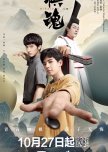
Sweet & delightful story, top notched acting, wonderful bromance
This drama is adapted from a very popular Japanese manga (comic) which was later also made into an anime (cartoon) in the early 2000s. The adapted story tells the struggle in bringing awareness of weiqi and retaining interests in the game among the youths, and the arduous path to fame and glory for the successful players. Weiqi is also known as GO in Japan and Baduk in Korea.Despite being one of the oldest board games and was started in China more than 2,500 years ago, weiqi has not received a lot of attention, especially among the Chinese youths who favor Chinese chess. For years, Korea has been the champion and in recent years China produces multiple world class players to challenge the champions. Weiqi is a must-have and common item in all Chinese historical dramas today. All emperors, scholars, officials and generals are expected to be well versed at the game.
What seemingly a very simple board game, using only any drawn grid boards or tiles on the ground with any black and white pieces, weiqi is one of the most complex games. There are no complicated pieces, no complicated moves. Anyone can play it anywhere, any time. And yet it can be challenging and difficult to master. For me, weiqi is a philosophy; it helps us realize many analogies in life and understand the philosophy of life. It has no restrictive form and yet there is a name for every position on the board and a term for every action a player takes; it is intriguing and mesmerizing.
All the actors are unrecognizable to me, but their acting is one of the best - natural and believable. Shi Guang (played by Hu Xian Xu) is just like a kid in your neighborhood. He’s not very fond of academic work and fully absorbed into his toy cars (when he was a little boy). He is restless and at times, reckless, but he is the most endearing character who has great dynamics with everyone he encounters. Often, he is unintentionally funny.
When the spirit of Chu Ying (played by Zhang Chao aka Juck Zhang) appears to him, they become friends. Chu Ying uses Shi Guang as a medium to play weiqi, and his first opponent is Yu Liang (Hao Fu Shen) who is the youngest and the best weiqi player and his (Yu Liang’s) father is the nation’s number one weiqi player. To Yu Liang’s dismay, he loses the game and it is the most unforgettable event for him. He vows to work harder and wins back his honor. Since Shi Guang is not interested in weiqi in the first place and doesn’t want to be used by Chu Ying, he refuses to comply to Chu Ying’s instructions in playing the game. Chu Ying disappears. For years Shi Guang is happy with his life and has forgotten about Chu Ying until one day he’s back playing weiqi again in high school. Chu Ying returns. This time, they become pals. Chu Ying teaches Shi Guang all the skills, polishing him up for competitions. They love each other and they are inseparable. Chu Ying is Shi Guang’s angel but others think Shi Guang is having an active imagination and an imaginary friend. The path to become a professional player is covered with challenges and obstacles as Shi Guang finds out. Like all other weiqi players, his daily life is mundane; he plays weiqi eating, sleeping and all the time. I wish the drama has focused and showed the viewers more on how he has won playing with the more seasoned players with his strategic and unconventional moves. Unfortunately, all these are skipped and we only know of the results at the end of the competitions.
When the time comes and he has to leave, Chu Yin leaves without saying goodbye. Shi Guang is devastated. He grieves for the loss of a good friend who is also a part of him. For months, he’s lost, rendering him dropping out of weiqi. He returns when he realizes Chu Ying is now in his weiqi; they have become one.
Hu Xian Xu’s acting here is amazing. He captures the whole essence of the character of Shi Guang who is a happy-go-lucky kid with not much on his mind. He loves his friends but at the same time, mischievous to everyone. He may not be intelligent academically, but he is quick witted and can always find a way out of his predicament. His final few episodes are heart wrenching, crying for the loss of his soulmate, and I cry with him. Hu Xian Xu’s acting is so natural and so authentic, making the viewers laugh and love him.
Chu Ying is the spirit of an ancient weiqi player who is being slandered and whose name disgraced. He comes to Shi Guang by accident and piques Shi Guang’s interest in weiqi. They form a formidable alliance and become soulmates. For years, he helps Shi Guang realizing his potential. To others, Shi Guang seems like having an imaginary friend, speaking to himself and playing with himself all the time. The scenes are sweet and funny.
Zhang Chao’s depiction of Chu Ying is commendable. His portrayal is so real and makes the character such a lovable and beautiful ghost for all to enjoy. The contrast in their outfits is just so hilarious and yet so outstanding. His chemistry with Hu Xian Xu is undeniable.
Shi Guang has many buddies like Hong He (Zhao Hao Hong) and Shen Yi Lang (Sun Can), but none have the chemistry like he has with Yu Liang (Hao Fu Shen). Though they have met each other in episode one, they have not been together until the final episode when they are building a double team for the world championship. They bicker and banter a lot like young boys do, but their chemistry is amazing. I wish they have shown the scenes how the duo beat other renown weiqi couples with their unspoken communication, a look in the eyes, reading each other’s body language. For Yu Liang, Shi Guang is the light that brightens him up, and with his brightness, Shi Guang shines (their names).
This drama deals in depth with the relationships of Shi Guang with his mother, with Yu Liang, with his friends, and most of all, with his teacher, Chu Ying. It is delightful, funny, humorous and meaningful. The characters are flawed, interesting and well developed. This is one of the dramas that I’ve enjoyed thoroughly. It is also one of the very few that respects viewers’ intelligence. I love how they use the child actors for juveniles Shi Guang and Yu Liang, both children have resemblances of the older Shi Guang and Yu Liang, and the kid actors are adorable and great in their acts. I find myself smiling from episode one until the last. My only qualm is perhaps with the fan that Chu Ying has left for Shi Guang. I wish the writer has done it differently than giving a physical object of Chu Ying to tell the viewers that Chu Ying has never left Shi Guang but with him in his weiqi. I would love to have thought there has never been a Chu Ying but an inner voice of an unwoken prodigy. But with the fan, this has ruined the scenario for me; Chu Ying does exist but it’s hard to fathom how his immaterial fan materializes and becomes a solid object in front of Shi Guang.
Seeing the dedication of each player, their respect for each other and their humbleness, really makes my heart warm and brings a warm tear to my eyes. Winning is not everything, but the process in taking part in a competition is the most exhilarating experience one can enjoy. As with everything we may do in life, winning doesn’t really mean success and losing doesn’t really mean failure; it’s how we look at winning and losing.
As the world moves towards popular culture, ancient board games such as weiqi is being forgotten. Like ancient languages, fewer and fewer people know how to play and have the interest in weiqi. This drama tries to create awareness of the most wonderful game and promote interest among the youths. I hope after this drama, more people pick up playing weiqi. As for me, I am definitely doing so, crossing out one of the items which has been on my bucket list forever.
My verdict
This drama does not have all the big names, and yet it is well written and performed. The attention to details, in particular the norms of the era, is both immaculate and applaudable. This is an endearing and my most favorite non rom-com drama that evolves around weiqi and competitions. Even if viewers think weiqi is not their favorite subject, this drama is still an amazing watch because the story is so well told, the acting is fabulous and authentic, and the subject weiqi is deep and fascinating.
Some viewers have complained the final few episodes that the director has spent too much time dwelling into Shi Guang's pain and his breaking down. I actually love this breaking down period. It's a period of discovery and realization for him; I feel many people have missed that element here and therefore couldn't understand what the director's intention is. I wish the director has also delved further into Shi Guang's relationship with Yu Liang after Chu Ying, how the duo have communicated with each other silently, especially during their double competitions. Their body language part is too short and shallow without the depth like how it's been done for others.
This is a drama that deserves to be on everyone’s to-watch list. Strongly recommended.
TWO THUMBS UP!
Was this review helpful to you?
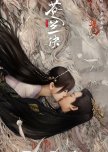
Cutest Dark Lord Ever, Amazing Intense Love
Love Between Fairy and Devil has probably given the viewers the cutest and most desirable Dark Lord of the three realms, not to mention a gorgeous God of War of the Heavenly clan as well. Between them, a love triangle ensues. The vivacious little orchid fairy who is kind and optimistic, living with the Heavenly clan, chooses the Dark Lord instead, a love that is forbidden, almost like a Romeo and Juliet romance. Within the first episode, I fall immediately in love with the story, the characters and the acting.He wants to protect her with all the power he has; she wants to be treated as equal, sharing joy and pain with him. What follows is a beautiful love story of a ruthless dark lord with a gentle and loving fairy who eventually melts the heart of the devil who has no emotions.
This drama is adapted from the novel "Cang Lan Jue" which was also made into an anime. According to many readers, the drama version is more enjoyable and the Dong Fang Qing Cang character is better written and developed. For me, I'm totally sold by this character. Here we have a Dark Lord that tries to save and protect his people, a heavenly realm that swears to kill all those it considers as evil, and a a fairy who heals and wants peace for all realms.
Void of feelings, the Dark Lord Dong Fang Qing Cang (played by Wang Hedi aka Dylan Wang) is such an amazing character. Being the strongest and most powerful of all the characters with his deadly hell fire, he is overbearing and atrocious. Wang Hedi’s acting is so good and convincing here. He has the rare charisma of being cold and authoritative, but not being stiff like a robot that is usually portrayed by many other actors. His facial expression is simply amazing with a hint of evilness (妖气) and yet at times, viewers can feel his resignation and turmoil within. The actor is very good looking. He can look very serious and arrogant, with large eyes that can look devilish, so he looks very frightening when Dong Fang Qing Cang is in a rage. But at a flip of the switch, he can look totally silly and harmless like a hush puppy. At only 23, Wang Hedi's acting is very mature. I really love his portrayal of the Dong Fang Qing Cang character and he has aced his role hands down; no others can match him. Together with an incredible CGI team, the result is a perfect Dark Lord that everyone fears and loves. I don't have enough of his scenes and for once, I wish the drama had been longer.
Xiao Lan Hua, literally means Little Orchid, played by Yu Shuxin, is equally believable. Yu Shuxin has a very girly, pure and innocent look, and with her ethereal beauty, she is perfect for the role as a little fairy. Her acting is natural and convincing, but when it comes to becoming the Dark Lord as he possesses her body, she is lacking a bit; she looks more like a half-sleep dream walker. Luckily there are not that many of such scenes and she hasn't brought the story down. Xiao Lan Hua later transforms into a goddess who has a totally different personality, and Yu Shuxin manages that role very well; she is very convincing. Many viewers also commented on her voice which she self-dubbed. I find her voice suits the role very well as a little girl who is so pure and innocent.
This drama also gives us a gorgeous second male lead, Chang Heng played by Zhang Linghe. The actor made his debut in 2020 in Maiden Holmes and has since made several well-rated dramas. As with Wang Hedi, Zhang Linghe also plays two characters in this drama: the cold, aloof ethereal God of War, Chang Heng, and the warm and flamboyant human character, Xiao Run. Both roles are being executed convincingly and flawlessly.
Everything about this drama is well thought out for most parts – the script writing, the directing, the camera work, the CGI, the costumes, and most of all, the selection of actors and their respective acting. The storytelling is cohesive and intelligent, and the costumes are so well designed that by themselves, tell the story of our characters visually. The dialogues are funny and cute especially those that uttered by the Dark Lord. The music is beautiful, in particular, the instrumental tune blown by the grey character Ron Hao (played by Xu Haiqiao) on the flute. The music brings out the melancholy and yearning for a loved one, with a love story that is sad and beautiful. The plot is easy to understand, and yet, there are twists and turns that sit the viewers up. I really love the conceptual architecture of Xiao Lan Hua's abode which is surreal and aesthetic.
Re-watch? Absolutely! I would never have enough of Wang Hedi's scenes here. The story is dark and serious, and yet it is also tear-jerking and full of humors and very funny. It captures the viewers' hearts and emotions. After the final showdown and climax, the ending seems a bit lackluster and disappointing. Proper justice has not been done for Dong Fang Qing Cang to vindicate him from some of the killings he hasn't done, and another character escapes with impunity. As with most Chinese dramas, the writing of the final two episodes weakens with a lack of imagination, and is not as compelling as the beginning. I wish the production team had been more creative with the final scene, instead of a mere banal line of, "I'm back". Nonetheless, it hasn't reduced my enjoyment. Overall, this is a great watch and strongly recommended. MUST WATCH!
TWO THUMBS UP! BRAVO!
Was this review helpful to you?

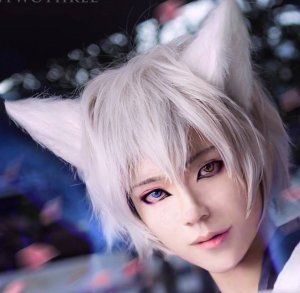
 1
1 5
5 1
1


















